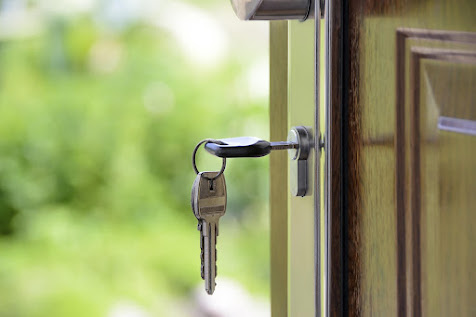Fixing False Alarms: Common Causes and Simple Solutions
You’ve probably experienced it: your home alarm suddenly goes off in the middle of the night — but there’s no sign of an intruder. It’s frustrating, disruptive, and even dangerous if emergency services are falsely alerted. These false alarms are more than just a nuisance — they can lead to fines, loss of trust in your system, and even delayed responses to real emergencies.
In this post, we’ll break down the most common causes of false alarms and show you exactly how to fix them. Whether you have a DIY system or a professional one, this guide will help you keep your home secure — without the unnecessary sirens.
🚨 What Is a False Alarm?
A false alarm occurs when your home security system is triggered, but there is no actual threat — no break-in, no fire, no emergency. These incidents can waste time, cause panic, and even lead to penalties if they involve emergency services.
🔍 Common Causes of False Alarms (and How to Fix Them)
1. User Error
Cause: The most common reason for false alarms is simple human error — entering the wrong code, forgetting the system is armed, or not properly closing a door or window.
Solution:
-
Train all family members or household occupants on how to use the system.
-
Set up entry/exit delay settings that give you more time to disarm.
-
Use key fobs or app-based disarming to reduce keypad mistakes.
2. Faulty or Poorly Placed Sensors
Cause: Motion detectors that are too sensitive or improperly installed can trigger alarms due to pets, moving curtains, or even bugs.
Solution:
-
Adjust the sensitivity settings on your sensors.
-
Ensure sensors are securely mounted and not facing windows, vents, or heat sources.
-
Use pet-immune motion detectors if you have animals.
3. Low or Dead Batteries
Cause: When a sensor’s battery runs low, it may start malfunctioning or disconnecting from the system, resulting in false alarms.
Solution:
-
Set reminders to check and replace batteries every 6–12 months.
-
Use systems that alert you to low battery levels via an app or panel.
4. Faulty Wiring or Aging Equipment
Cause: Older systems or poorly installed wiring can cause intermittent connections that trigger false alerts.
Solution:
-
Have your system inspected annually by a professional.
-
Upgrade outdated components to newer, wireless or smart-enabled systems.
-
Avoid DIY installations unless you’re confident with electrical work.
5. Environmental Triggers
Cause: Wind-blown objects, rapid temperature changes, or even pests can trigger sensors if they’re not designed for environmental fluctuations.
Solution:
-
Use dual-technology sensors that detect both heat and motion for more accurate readings.
-
Keep outdoor areas clean and free of hanging decorations or overgrown plants near sensors.
-
Weatherproof your sensors if they’re exposed to the elements.
6. Improper Door/Window Contacts
Cause: If contact sensors are not aligned properly or doors don’t close completely, the system might think they’re open — and sound an alarm.
Solution:
-
Check the alignment and secure mounting of all contact sensors.
-
Make sure doors and windows shut fully and don’t sag or misalign over time.
-
Use high-quality sensors that are resistant to tampering or interference.
🛠️ Bonus Tips: How to Prevent False Alarms
-
✅ Use smart home integration: Many false alarms can be avoided with smart features like geofencing, which automatically arms/disarms your system based on your location.
-
✅ Enable mobile alerts: Get instant notifications so you can verify whether an alarm is real before it escalates.
-
✅ Test your system monthly: Routine checks help catch issues early.
-
✅ Label keypads and teach guests: Leave clear instructions for visitors, cleaners, or dog walkers.
🏆 Why Fixing False Alarms Matters
Ignoring false alarms can have serious consequences:
-
Fines from local authorities (some cities charge after multiple incidents)
-
Decreased trust in your system (you’ll stop taking alerts seriously)
-
Missed real threats (delays or disabled systems during actual emergencies)
Taking the time to fix these issues ensures your security system is reliable, accurate, and truly protective.
🔎 Final Thoughts
False alarms are common, but they don’t have to be. With a little maintenance and awareness, you can reduce or eliminate them entirely. A dependable home security system should give you peace of mind — not panic at 3 a.m.
Take action today: Check your sensors, test your batteries, and review your system settings. A secure home starts with a smart, silent system that only speaks up when it matters most.






No comments: